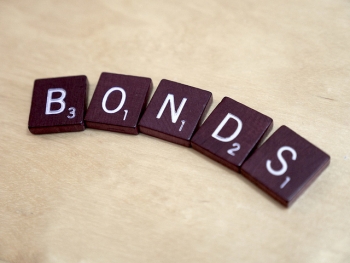3 Signs Even the Best Fixed Rate Bonds Aren't Right for You

If you do an online savings account comparison, you'll find that fixed rate bonds tend to offer the highest interest rates for your savings. So, why would anyone claim that there might be situations in which even the best fixed rate bonds aren't right for you?
It's all a matter of working out the figures. There are times when it may not be a financially viable idea to lock your money into a fixed rate bond. Here are some examples highlighting where you may benefit by putting your money elsewhere.
You Have Outstanding Debts
If you are paying off an outstanding personal loan or a credit card, a savings account should be the last thing on your mind. A good rule of thumb is to start saving once you've paid your debts off. Personal loans and credit card debts charge a significantly higher rate of interest than the amount you could potentially earn on money in a savings account.
For example, if you owe £1,500 on your credit card and you have a low APR of 7.8%, it will cost you £117 per year in interest if you keep the same balance on the card. The maximum rate on a savings account at the moment is around 3.2%, which means that if you put £1,500 in a savings account instead of paying off your credit card, you'll make £48, of which at least 20% goes to the government in tax. So, if you were to use that money to pay off your credit card instead, you'd save £78.60.
The only situations where you should have a savings account at the same time as debt is when you're not paying any interest on the debt or the early repayment penalty is so high it doesn't make sense to pay off the loan early. Take a careful look at how much you're really paying on your existing debts and work out which option is right for you.
You Haven't Paid Off Your Mortgage
In some cases, it makes sense to pay off your mortgage before putting money in a savings account. Of course, if you have no other expensive debts, such as credit cards or personal loans, those should take priority over the mortgage.
To figure out whether you should use your savings to pay off your mortgage, you are going to have to actually work out the figures. Some banks will charge you an early repayment fee for paying off your mortgage, which might make it much too expensive to pay off your mortgage early. Likewise, the rate on your mortgage may be quite a bit lower than the interest rate you could earn from a savings account, although this tends to be rare.
Currently, one of the best fixed rate bonds on the market offers a 3.16% interest rate. One of the cheapest mortgages features a 2% APR, although you can't borrow more than 60% of the property value. Even so, let's presume that there are no early repayment fees. At first glance, you'd think that it would make sense to put any extra cash you have on hand in a savings account rather than paying off your mortgage, but is that really an accurate assumption?
First of all, the 3.16% is subject to tax, which is a minimum of 20%. That means you'll actually be earning 2.53% on your savings. It's still higher than the interest rate you're paying on your mortgage, but the true figure really depends on the size of your mortgage.
Let's assume that you have a mortgage of £150,000 and you've managed to budget your money in such a way that you have £100 you could either put into savings or pay off extra on your mortgage every month.
If you were to use the £100 as an additional monthly payment on your mortgage, you'd save £7,347 in interest costs and pay off your home within about 20 years instead of 25 years. In other words, you'd be free of the bank five years earlier.
On the other hand, if you were to put that money into a savings account you'd earn approximately £7,198 over the same 20 years. These calculations are assuming you could find an account that would let you make monthly deposits at the same rate.
Remember, this example takes into account a really low mortgage rate. If you did the same calculation with a 5% rate on your mortgage, you'd end up saving even more over the long term.
You Don't Have an ISA
If you haven't opened up a Cash ISA yet, you shouldn't be shopping around for a fixed rate bond. Even if Cash ISA rates are slightly lower than fixed bond rates, they can still easily beat the best fixed rate bonds because your earnings aren't subject to tax. Thus, the real rate you can earn on the current five-year fixed rate bond advertised at 3.16% is 2.53% per cent. By comparison, the best Cash ISA, which is also a five-year fixed rate account, is offering 2.9%.
Finding the best fixed rate bonds isn't hard. What's hard is being realistic about your financial situation and determining which option is best for you. If you're free of debt and have used up your entire ISA allowance for the year, then a fixed rate bond might be just right for you.
